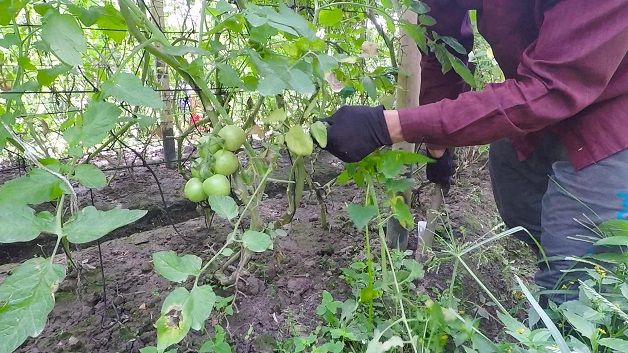The application of Microbial biofertilizers and algae-based biostimulants in the cultivation of processing tomato in an organic farming system can increase production of marketable fruit yield and quality.
According to a study by a team of Italian researchers, Microbial biofertilizers and algae-based biostimulants also have been recognized for supporting sustainable agriculture.
This follows field experiments which were conducted between 2022 and 2023 growing seasons in an organic farm located in Ferrara, Italy with the aim of evaluating plant growth-promoting microorganisms (PGPMs) and algae-based biostimulants (Biost) in tomato (Solanum lycopersicum L.).
This comes at a time beneficial soil microorganisms are poised to replace chemicals and pesticides by enabling the use of sustainable agricultural practices and supporting organic farming.
The researchers say that the benefits of using microbial biofertilizers as plant growth-promoting microorganisms (PGPMs) in crop production are well proven; however, their application in agricultural management is still limited.
In their study, they found that PGPMs significantly improved root development, shoot biomass, and overall health of tomato plant seedlings.
In fact, the highest crop yield of 67.2 tons per hectare, was recorded with a combined application of a PGPM product called MYCOUP and a 1.0% algae-based biostimulant.
From these findings, the researchers believe that the use of PGPMs and algae-based biostimulants can be easily adopted as they contribute to a growing body of work which can influence future innovations in organic and sustainable farming.
At tomato harvesting, the improved fruit yield and the high value of marketable tomatoes showed that the combined application of PGPMs and algae-based biostimulants represents a promising strategy for improving sustainable vegetable production in organic farming.
In this, the adoption of innovative solutions in agriculture such as microbial biofertilizer and algae-based biostimulants can represent valid tools for regenerative agriculture able to match natural processes with sustainable agricultural productivity.








